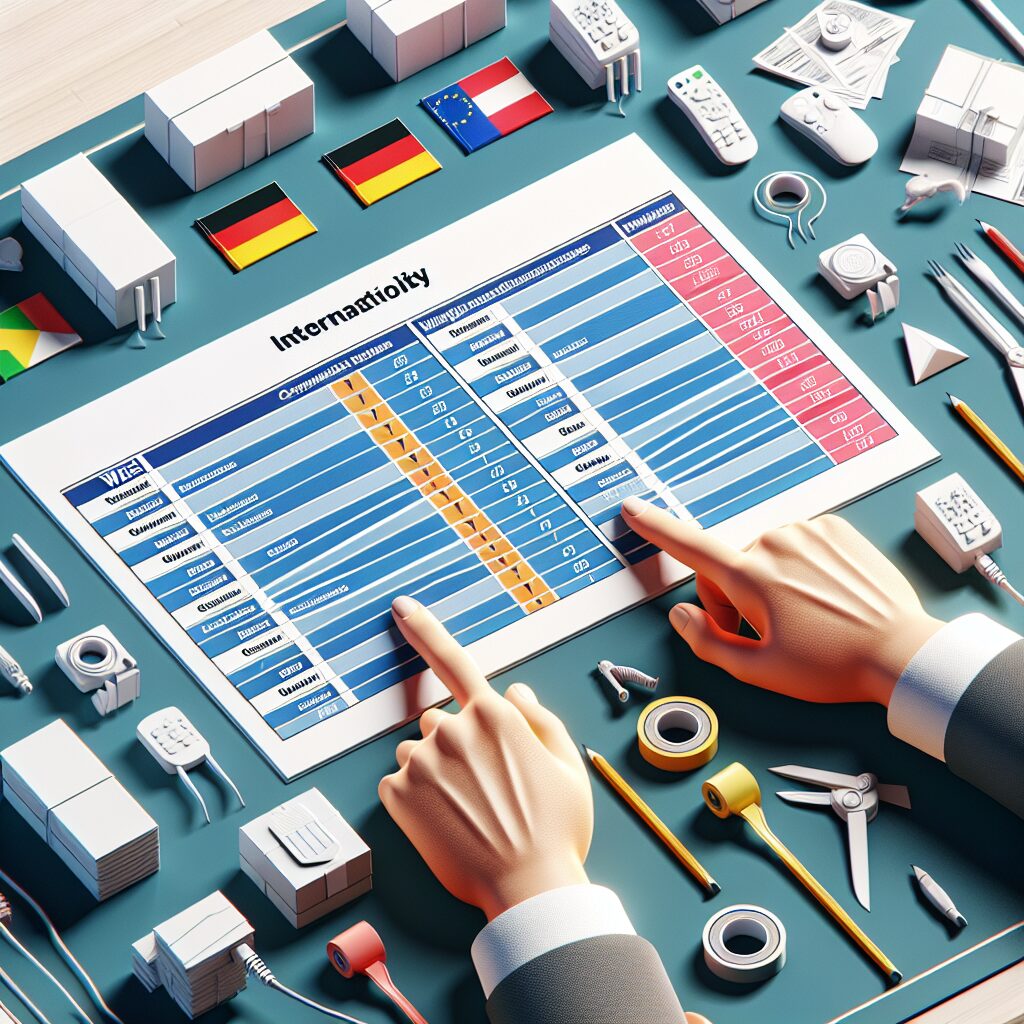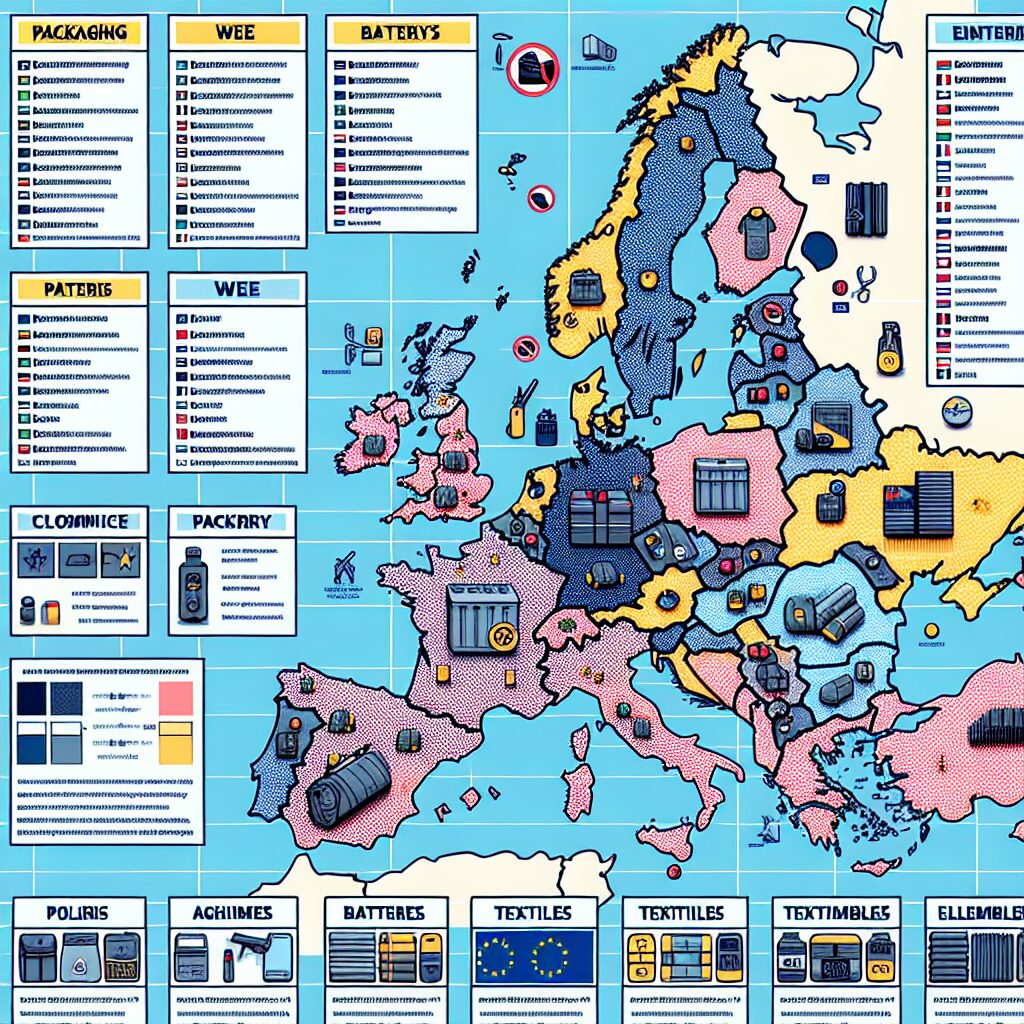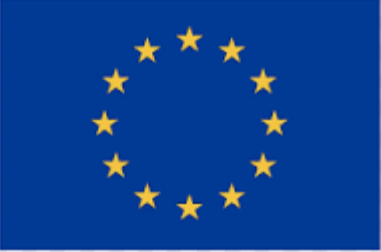About eldris
epr.eldris.ai leads the EPR sector, in fast, automated, AI Agent EU Complaince. LUCID Packaging, WEEE, and Battery Compliance for Brands, E-Commerce and Service based businesses expanding into the EU.
In This Article
- LUCID Registration Germany is legally required for all who place packaging onto the German market.
- From 2025, stricter enforcement and new roles for non-EU sellers apply.
- Registration with both LUCID and a licensed Dual System is non-negotiable.
- Annual reporting is mandatory and must align with Dual System declarations.
- Marketplace listing is tied to public register status—compliance is essential.
What Is the LUCID Packaging Register?
Understand Its Role in German EPR
The LUCID Registration Germany platform is the online public register operated by the Central Agency Packaging Register (Zentrale Stelle Verpackungsregister – ZSVR), in partnership with the German government. It plays an integral role in ensuring compliance with Germany’s Verpackungsgesetz (VerpackG), the Packaging Act. Any business placing packaged products onto the German market must register with LUCID to fulfil their Extended Producer Responsibility (EPR) obligations. This includes manufacturers, importers, online sellers, and fulfilment service partners, regardless of whether the business is based within Germany or abroad.
By registering, companies declare the types and volumes of packaging they introduce, ensuring transparency and environmental accountability. The register is accessible to the public, including marketplaces such as Amazon and eBay, which use it to verify a seller’s legal compliance. Non-compliance can lead to significant fines or bans from selling on major e-commerce platforms.
Moreover, LUCID Registration Germany is not merely a formality; it ensures that proper recycling and disposal fees are paid, helping to fund Germany’s robust waste management system. Since its inception in 2019, the register has helped significantly improve recycling rates and encouraged producers to consider more sustainable packaging choices.

VerpackG 2025: Key Changes & Deadlines
Updated Responsibilities Under New EPR Rules
The Packaging Act has evolved steadily since its implementation, with the 2025 updates introducing stricter monitoring and broader inclusion. In particular, from January 1st 2025, enforcement mechanisms will be enhanced. This means more frequent inspections and data audits by the ZSVR. Businesses must renew or confirm their LUCID Registration Germany annually and demonstrate continued compliance, including up-to-date license agreements with an authorised Dual System.
Additionally, the scope of the law has expanded. Previously exempted businesses, such as small-scale importers or certain B2B operators, are now mandated to register and report. There is also a greater emphasis on accurate categorisation of packaging types, distinguishing between sales packaging, grouped packaging, and transport packaging. Misclassification can trigger investigations or lead to bans from digital marketplaces.
Crucially, those who rely on fulfilment providers or use third-party logistics centres must ensure that the EPR responsibilities are delegated and transparent. Non-EU companies will need to appoint an authorised representative in Germany, a change introduced in this update cycle to harmonise with EU-wide EPR reforms.
How to Register with LUCID Step by Step
The registration process is straightforward but must be carried out diligently. Below is a step-by-step guide for complying with LUCID Registration Germany:
Step 1: Create a LUCID Account
Visit the official LUCID portal hosted by the ZSVR and create an account for your business. You will need to provide your VAT ID, company registration details, and designation of roles. This account will be used for all future annual declarations.
Step 2: Choose Packaging Categories
Identify the specific packaging types you place onto the German market. You must categorise them correctly to determine the appropriate disposal schemes and ensure accurate EPR reporting.
Step 3: Sign a Dual System Agreement
Before completing your registration, you must enrol in a licensed Dual System who will handle your recycling obligations. Proof of this agreement is mandatory and must match your packaging declarations.
Step 4: Finalise and Publish
Submit your completed LUCID Registration Germany profile. Once approved, your company will appear in the public register, where consumers and marketplaces can verify compliance.
Selecting an Approved Dual System
A Dual System is a waste management company authorised by the German government to collect, sort, and recycle packaging materials. Under VerpackG regulations, every producer must partner with one of these organisations to ensure their packaging waste is appropriately managed.
There are currently over ten registered Dual Systems, including Der Grüne Punkt, Interseroh, Reclay and Zentek. Prices and services vary, so it is advisable to compare quotes based on your annual packaging volume. In selecting a system, ensure that:
- The provider is officially listed on the ZSVR portal.
- They specialise in your packaging type and material streams.
- They provide reliable recycling documentation suitable for audits.
Failure to contract with a legitimate Dual System invalidates your LUCID registration and places your business at serious legal risk.
What to Report Annually for EPR
Under the EPR model, annual reporting is mandatory. Businesses registered via LUCID must submit a Declaration of Completeness (‘Vollständigkeitserklärung’) that outlines their total packaging volumes for the previous financial year.
Start preparing early—data must be categorised by material (e.g., paper, plastic, aluminium), packaging type, and total kilogrammes introduced. The deadline for most companies is 15 May each year, though some smaller businesses may qualify for threshold exemptions. Nevertheless, documentation must be retained for at least three years in the event of inspection.
Additionally, ensure harmony between your declarations and Dual System reports. Discrepancies between the two can flag audits or result in retroactive penalties.
Fines and Listing Blocks: What to Avoid
The risks for non-compliance are considerable. Administrative fines can reach up to €200,000 per violation. Furthermore, misleading packaging volume reports or missing LUCID registrations can result in a listing block by popular digital marketplaces and wholesale platforms.
Amazon, for instance, automatically delists sellers who are not verified in the LUCID database. Similar enforcement is applied by eBay and OTTO. German authorities maintain strong collaborative ties with these platforms. Even simple administrative oversights, such as failing to renew an expiring registration or mismatched address records, can result in imposed sanctions.
To avoid penalties:
- Use the LUCID online compliance assistant tools.
- Renew and update your registration details annually.
- Keep licenses, agreements, and declarations organised and accessible.
Using the EPR Checklist for 2025 Compliance
A well-structured compliance checklist is essential for navigating LUCID Registration Germany in 2025. Key points to include in your checklist are:
- Initial registration with the LUCID database.
- Signing a valid contract with a Dual System.
- Classification of packing types and confirmation with logistics providers.
- Submission of annual packaging volumes before the deadline.
- Monitoring of notification updates from the ZSVR and system partners.
Learn more about EU Packaging Compliance provides a downloadable checklist template that covers each of the compliance touchpoints with timeline reminders and submission formats.
Common Mistakes Online Sellers Make
Many small e-commerce sellers, especially those outside the EU, inadvertently breach VerpackG obligations. Common mistakes include:
- Believing that FBA (Fulfilment by Amazon) exempts them—Amazon does not assume legal responsibility.
- Failing to sign a Dual System contract before registering with LUCID.
- Underestimating their total packaging volume and misreporting resource categories.
- Delaying annual reports past the statutory deadlines.
Education and awareness are crucial. Freelancers or microbusinesses still face the same legal duties as large corporations when selling to German consumers.
Marketplace Requirements: Amazon, eBay and Beyond
The rise of multi-channel platforms has prompted marketplaces to enforce strict compliance with local environmental product regulations. As of 2023, Amazon and eBay now require all sellers shipping to Germany to provide valid LUCID registration numbers and confirm Dual System engagement.
Sellers who fail to comply are automatically delisted, with account suspension until compliance proof is submitted. These platforms also assist the ZSVR in identifying and reporting non-compliant sellers.
For merchants using Shopify, Etsy, or independent fulfilment centres, the onus remains on the seller to ensure EPR obligations are met. Integration of compliance data into product listing systems is increasingly common, so LUCID registration must be completed well in advance of product launch campaigns.
Tools and Automation for Ongoing Compliance
To cope with rising complexity, many businesses have turned to automation tools. These software solutions streamline packaging volume tracking, automatic report generation, licence renewals, and synchronisation with Dual System providers.
Solutions like EPR Manager, Clever Compliance, and How to appoint an EU Responsible Person for Amazon sales offer integration with marketplaces and include proactive alerts for expiring declarations. These services are essential for sellers scaling to multiple EU markets, ensuring conformity across countries such as France, Germany, and Austria—each of which has its own EPR ecosystem.
Support Options for Non-EU Businesses
Companies located outside of Germany often need specialised support, especially those unfamiliar with EU regulatory frameworks. Non-EU sellers are now required to designate an authorised representative located within Germany to manage their EPR compliance on their behalf.
Several consultancy firms offer services ranging from registration help, document vetting, legal advisory, and direct communication with the ZSVR. These intermediaries can help you avoid fines, maintain good standing with marketplaces, and ensure full compliance every reporting year.
Read a related article outlines how foreign sellers can appoint a German-based partner who can legally submit declarations and interact with the authorities.
“LUCID Registration Germany is not just a regulatory hurdle—it’s the keystone of sustainable trade across the EU’s most demanding environmental market.”
Conclusion: Stay Compliant in 2025
Staying on top of LUCID Registration Germany in 2025 is vital for any business selling into Germany. With stricter controls, higher visibility of the public register, and tighter deadlines, the cost of non-compliance is rising. However, with the right tools, procedures, and partnership strategies in place, EPR doesn’t have to be overwhelming.
By acting proactively—registering early, choosing a reliable Dual System, verifying data, and learning from common missteps—you can ensure your business remains compliant, desirable to consumers, and trusted by marketplaces. Use the checklist provided, make use of support services if needed, and treat EPR as a blueprint for building a sustainable, market-resilient operation.
Great guide on germany-verpackg-epr-lucid-dual-systems-2025-reporting-checklist – Community Feedback
What is the Lucid packaging Law Germany?
LUCID is the packaging register where manufacturers and online retailers must register all packaging placed on the German market. Registration with the German Central Agency Packaging Register (ZSVR) is mandatory to remain compliant with the VerpackG law.
What is a German packaging lucid registration number?
A LUCID number is the registration number issued by the Central Agency Packaging Register (ZSVR). All distributors of packaging in Germany must obtain this number, and marketplaces like Amazon and eBay require retailers to provide it.
Do I need a Lucid number to ship to Germany?
Yes, as of July 2022, any business shipping goods with packaging into Germany must register in the LUCID Packing Register, including wholesalers selling to German retailers.
Is Lucid registration free?
Yes, registering with LUCID is free; the process involves creating an account, submitting required information, and declaring the annual packaging volume.










